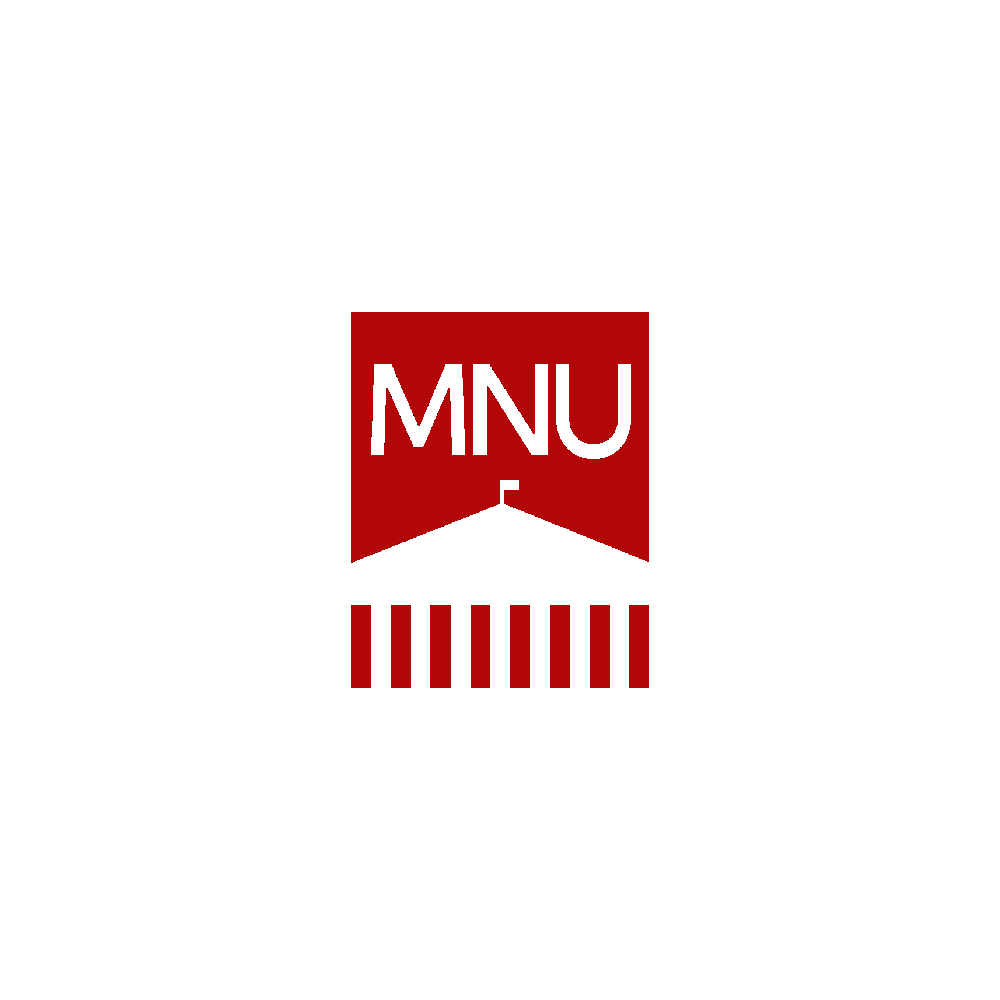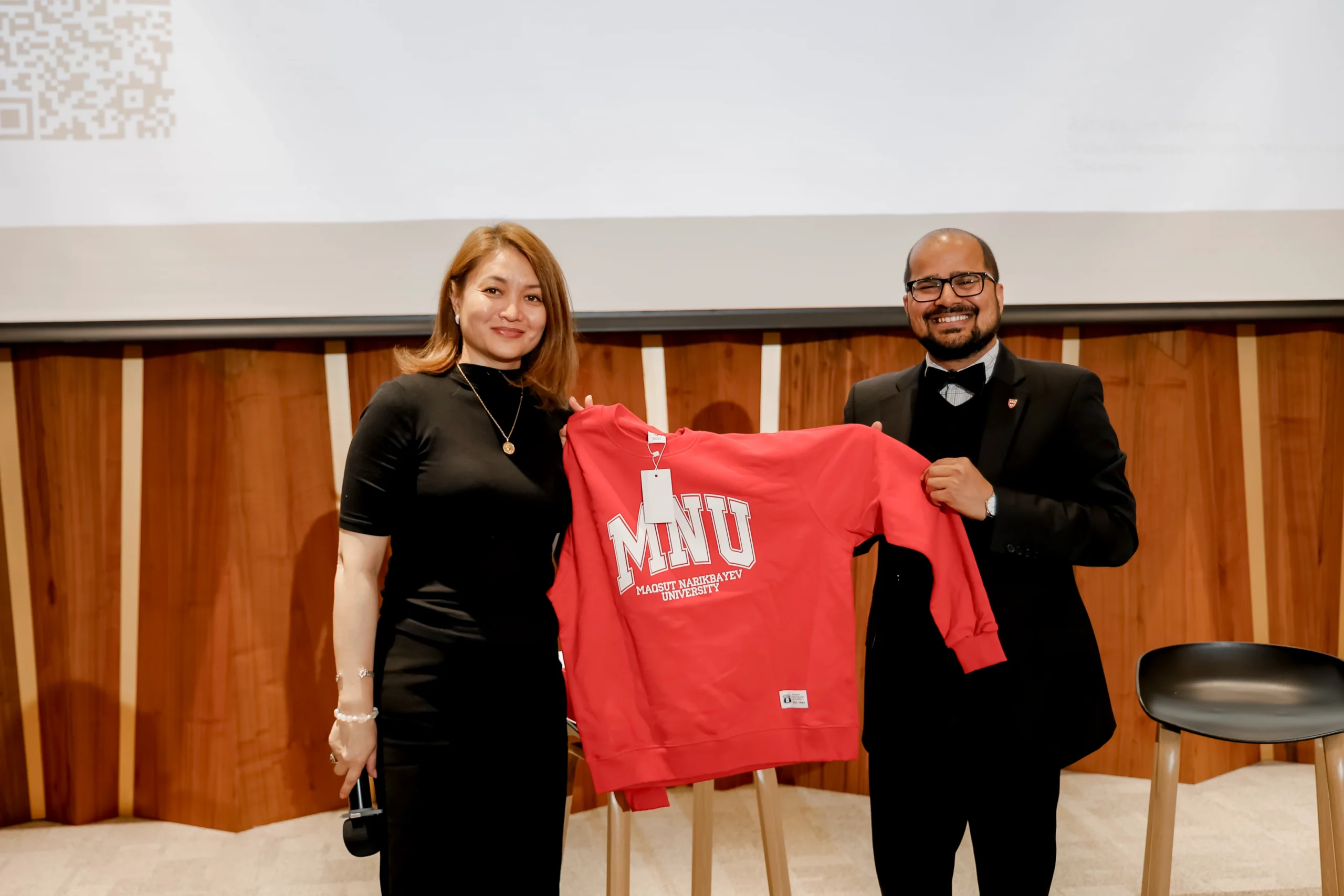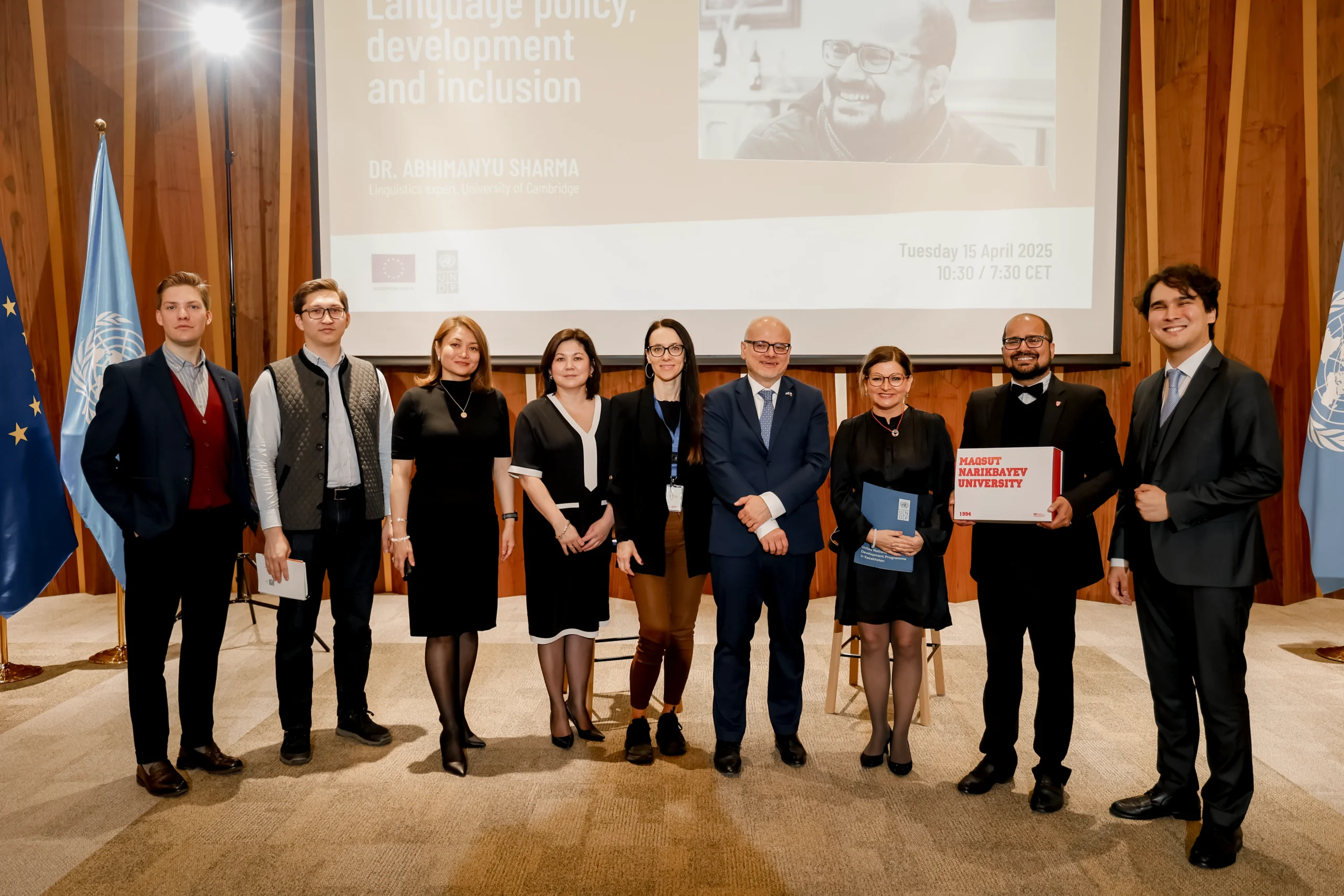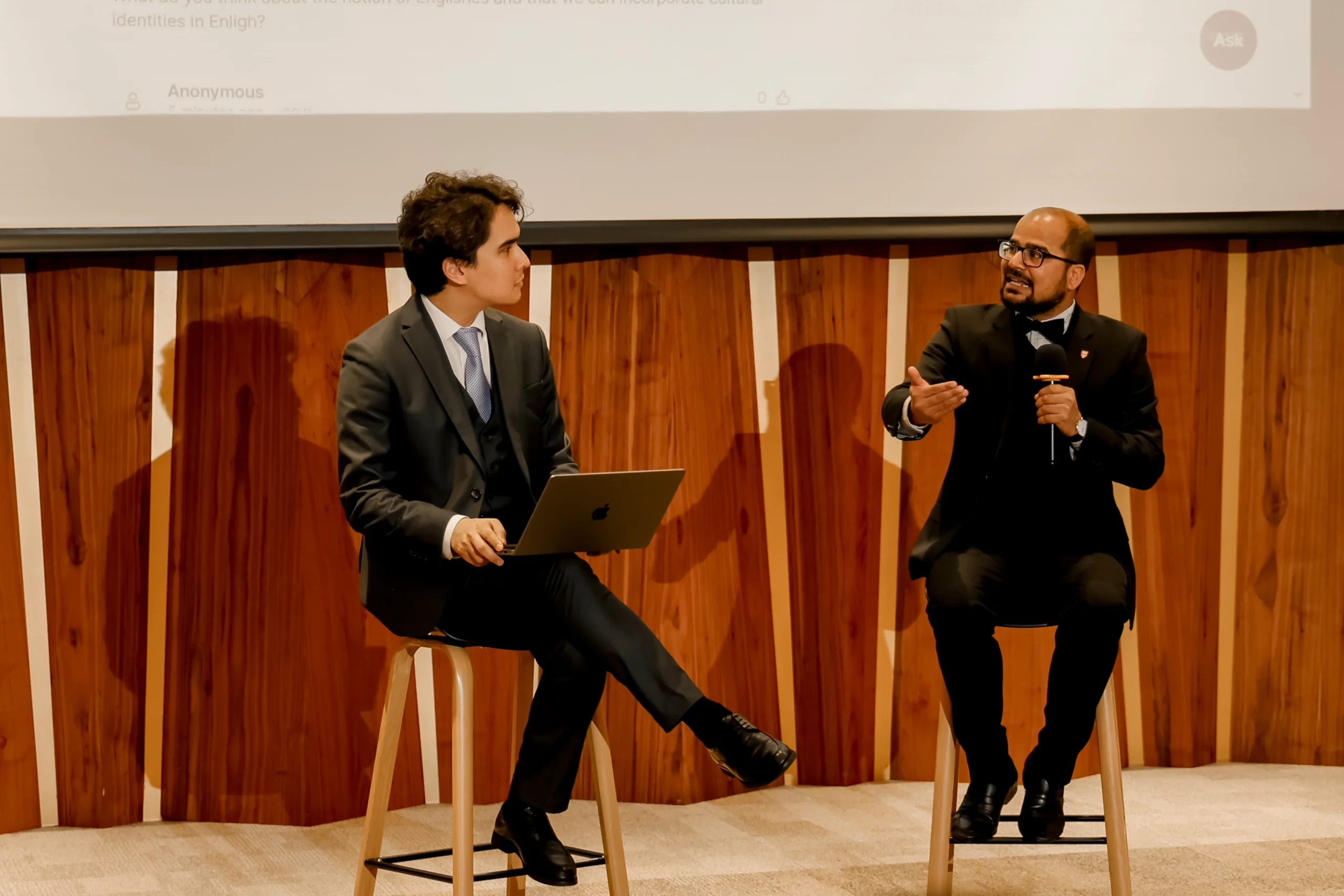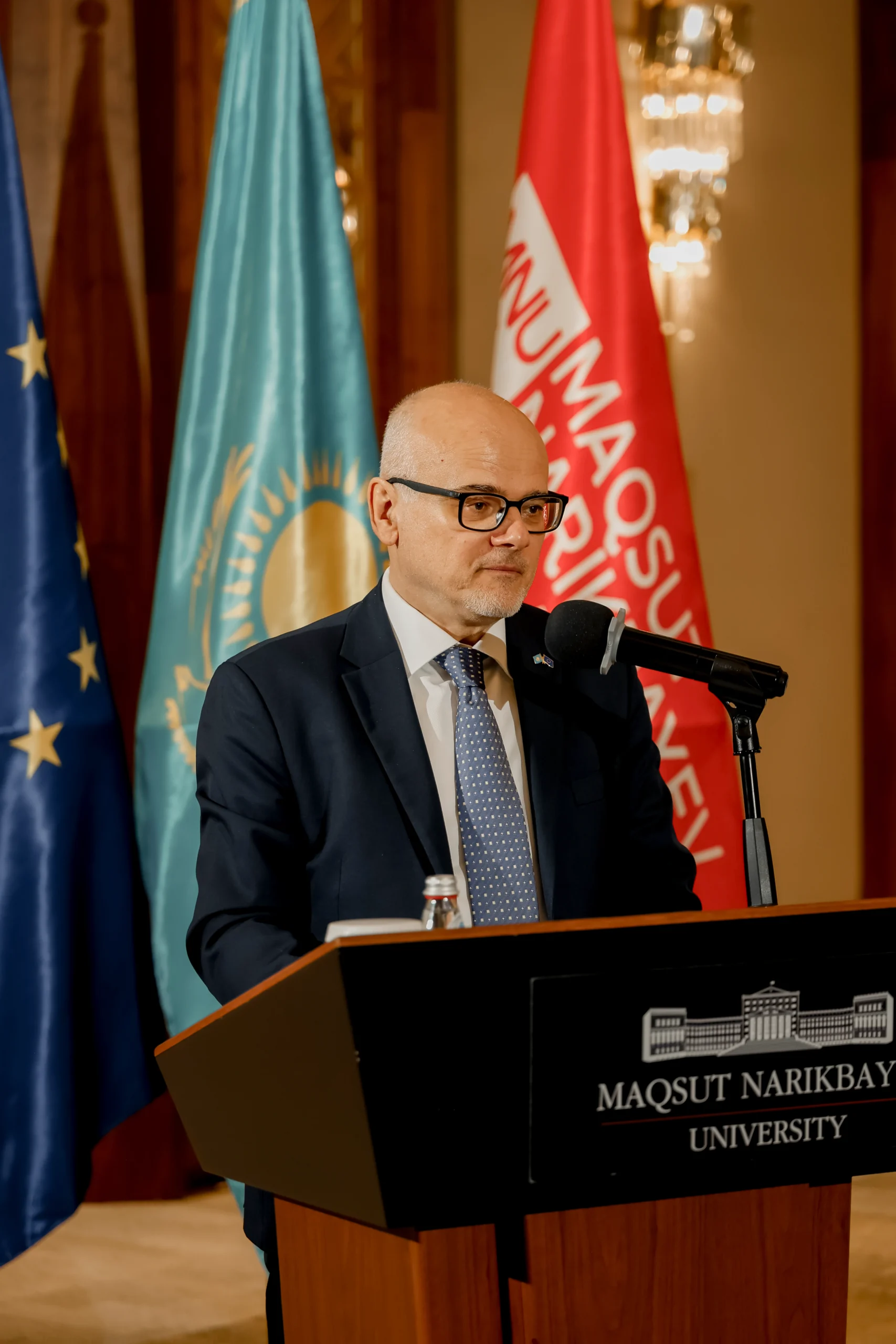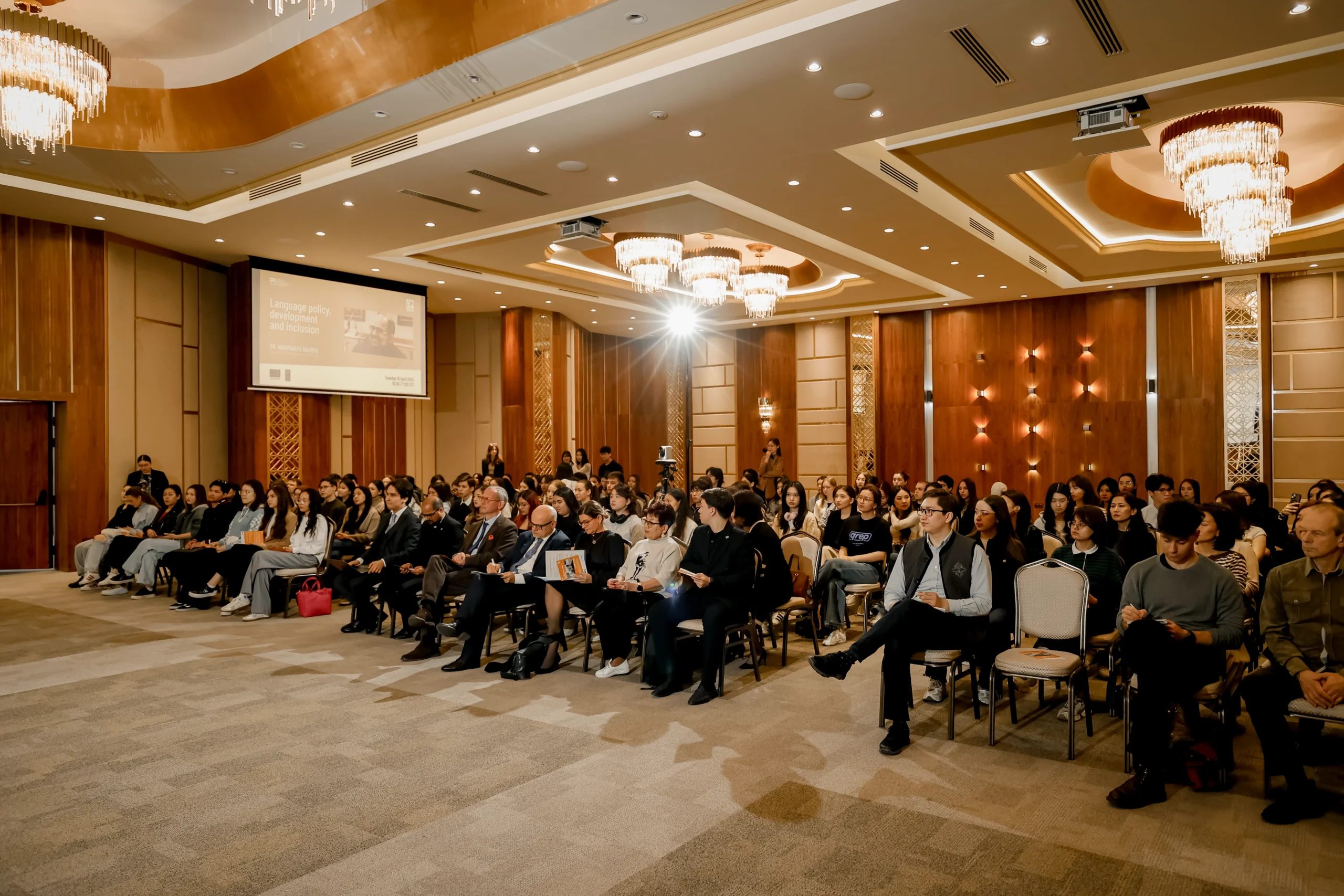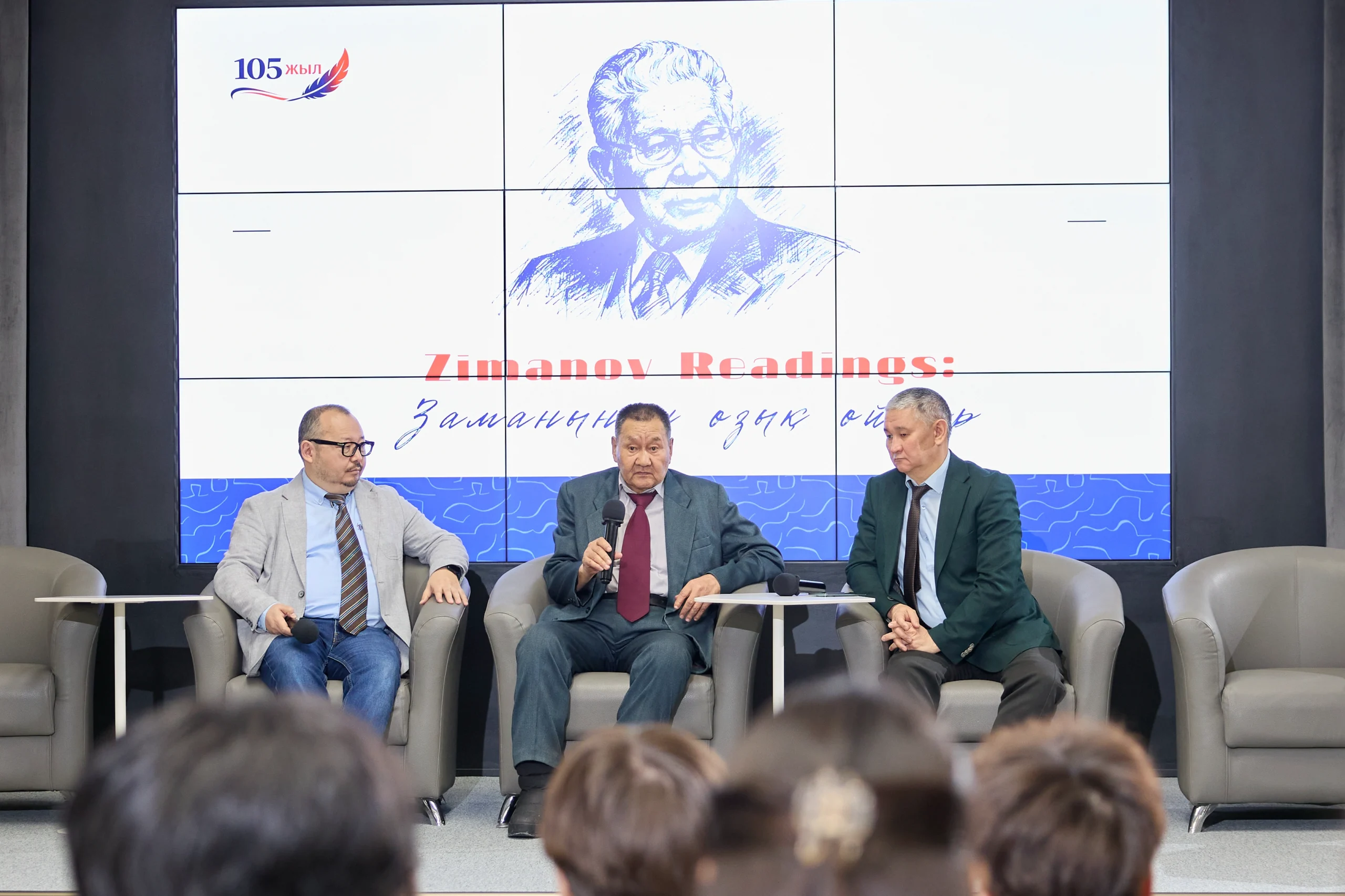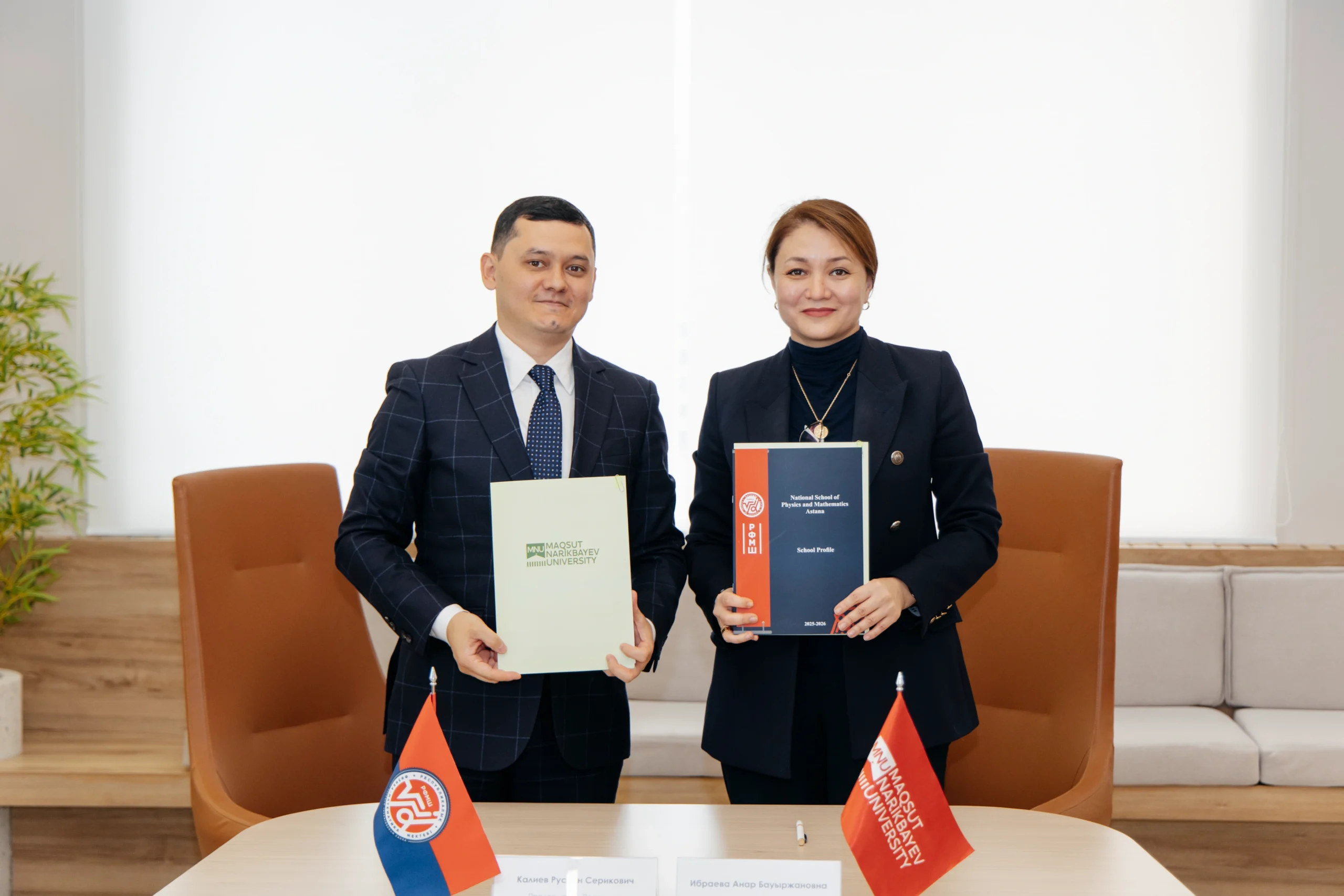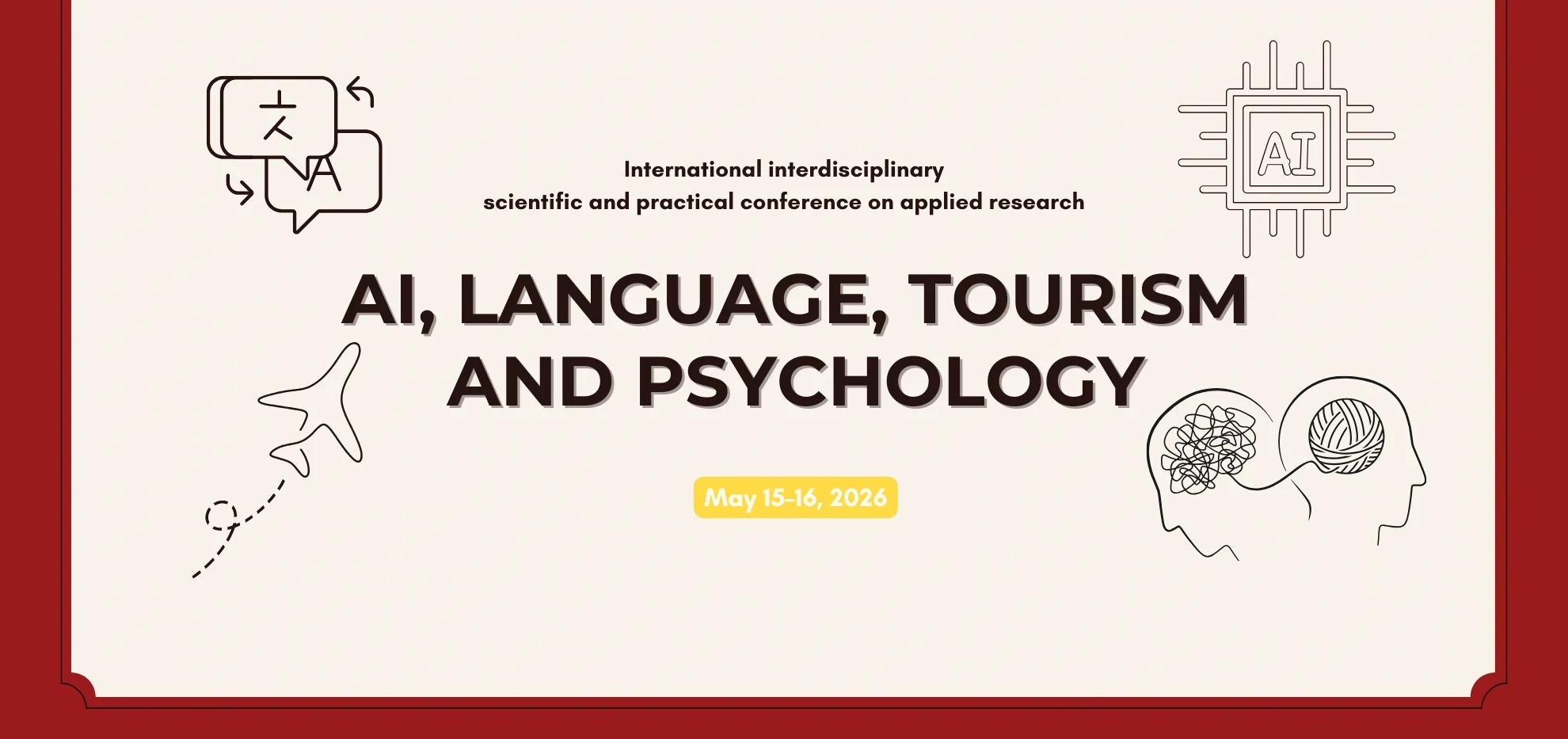Maqsut Narikbayev University (MNU) hosted the first-ever Kapuscinski Lecture in Central Asia, held as part of the Kapuscinski Lectures project, organised with the support of the United Nations Development Programme and the European Commission. Professor Abhimanyu Sharma from the University of Cambridge delivered a lecture on Language Policy, Development, and Inclusion—a topic that sparked great interest among MNU students and guests of the university.
Abhimanyu Sharma is a distinguished scholar in the field of language policy. His doctoral research focused on the European Union’s language policy in the context of India. During his lecture at the Kapuscinski Talks, he explored the profound impact of language policy on development. The discussion centred around two core areas: the role of English-language education and the marginalisation of deaf communities resulting from the absence of sign language instruction.
In his address, the speaker emphasised two key dimensions of language policy. The first part introduced fundamental concepts of public policy, language policy, and development. The second part delved into the role of the English language in India, particularly in relation to identity formation and social mobility. The final section addressed policies concerning people with hearing impairments, the social stigma they face, and the critical importance of sign languages.
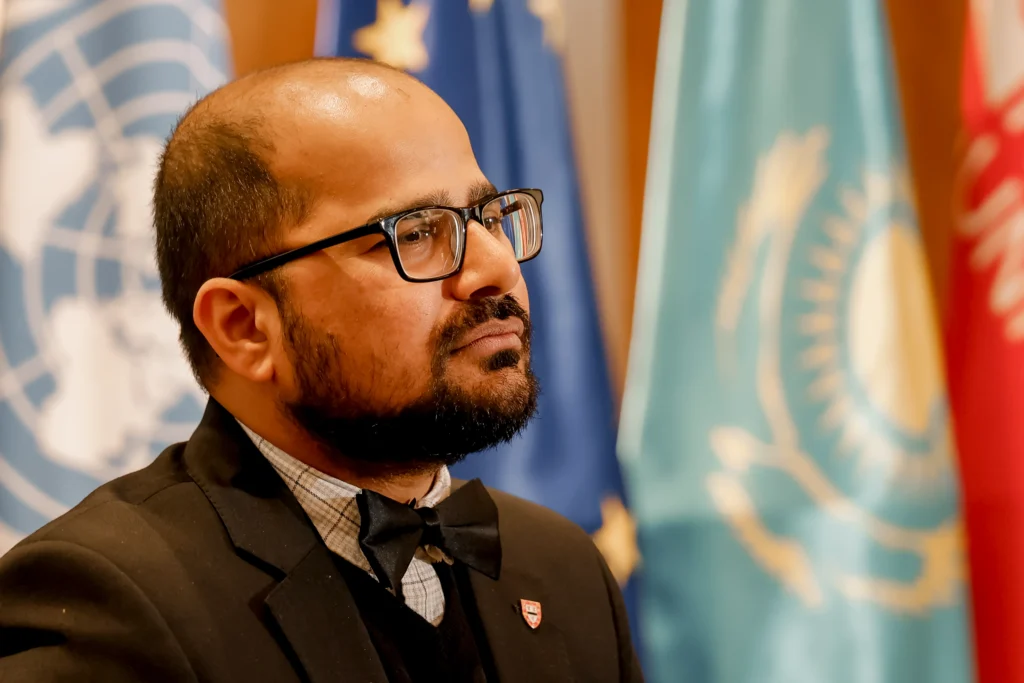
“Languages are often perceived merely as tools of communication. Perhaps this bias exists because the impact of languages on our daily life is not as tangible and visual to policymakers as, let us say, a unity party or a group. We tend to forget that languages are also powerful markers of identity. And because languages are so inherently intertwined with our self-perception and the way we define ourselves, they must be integral to public policy,” said Abhimanyu Sharma.
The speaker placed particular emphasis on those whose voices frequently remain unheard—members of marginalised linguistic communities. Their inclusion in the public, educational, and cultural spheres is not simply a matter of fairness, but a prerequisite for sustainable and inclusive development. According to Professor Sharma, empowering these communities by giving them a voice, granting access to essential resources, and ensuring their participation in decision-making processes is vital for building a future in which every individual feels valued and included.
“Language policy has a profound influence on the processes of social cohesion, because languages play a crucial role in tension building. They are fundamental in defining who or what states are. Thus, the strategic and inclusive governance of linguistic diversity has become a critical component of sustainable and equitable state development,” Abhimanyu Sharma underscored.
It is worth noting that the Kapuscinski Lectures project is named in honour of the renowned Polish journalist and writer Ryszard Kapuściński. MNU takes pride in being part of this international initiative, contributing to the advancement of an open, just, and inclusive society.
